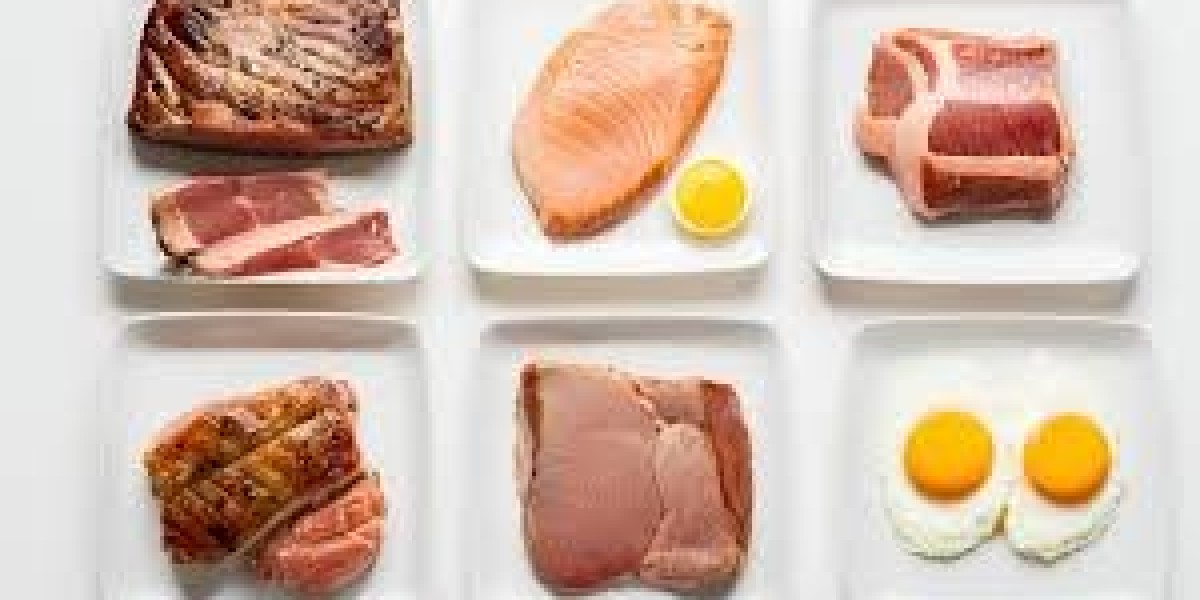The carnivore diet, also known as the all-meat diet, is an extreme, high-protein, and low-carbohydrate eating plan that involves consuming only animal products. This means that all plant-based foods—fruits, vegetables, grains, legumes, and even nuts—are eliminated from the diet. While it may sound restrictive, the carnivore diet has gained popularity for its potential to promote weight loss, reduce inflammation, and improve overall health.
At its core, the carnivore diet is simple: it consists primarily of meat, fish, eggs, and animal-based fats. Some variations of the diet allow for the inclusion of dairy products, such as cheese or butter, while others strictly exclude all dairy. By focusing exclusively on animal-derived foods, proponents of the carnivore diet claim that this way of eating can lead to improved physical and mental health, as well as weight management.
How Does the Carnivore Diet Work?
The carnivore diet works by dramatically reducing carbohydrate intake to nearly zero. Carbohydrates are the body’s primary energy source, but when carbs are limited, the body turns to fat for fuel instead, entering a metabolic state known as ketosis. In ketosis, the body burns stored fat for energy and produces ketones, which the brain and body use as an alternative source of fuel.
This shift to fat-burning can have several benefits, including weight loss, improved energy, and mental clarity. By cutting out carbohydrates, the carnivore diet helps stabilize blood sugar and insulin levels, potentially leading to more stable moods and fewer cravings. Additionally, the high-protein and high-fat content of the diet helps people feel fuller for longer, reducing overall calorie intake.
Health Benefits of the Carnivore Diet
Weight Loss
Many individuals turn to the carnivore diet for weight loss. By eliminating carbohydrates, the body enters ketosis, where it burns fat for fuel. This metabolic shift, combined with the satiating nature of protein and fat, often leads to reduced appetite and lower calorie intake, ultimately supporting weight loss.Improved Mental Clarity
The transition to ketosis can also have positive effects on cognitive function. Ketones provide a stable, efficient energy source for the brain, leading to improved mental clarity, focus, and reduced brain fog. Many people report feeling more alert and mentally sharp on the carnivore diet, which may contribute to increased productivity and improved mood.Reduced Inflammation
The carnivore diet may reduce inflammation in the body, especially for those with autoimmune conditions or chronic inflammatory diseases. Many plant-based foods contain compounds like lectins and gluten, which can trigger inflammation in susceptible individuals. By removing these potential triggers, the carnivore diet may help reduce symptoms of conditions like arthritis, inflammatory bowel disease (IBD), and skin conditions such as eczema.Better Digestion
For individuals with digestive issues, the carnivore diet may provide relief. Many people report improvements in bloating, gas, and irritable bowel syndrome (IBS) symptoms after switching to a meat-based diet. This is likely due to the absence of fiber and plant compounds that can irritate the digestive system. By eliminating these potential irritants, the carnivore diet may help restore balance in the gut and improve overall digestion.Stable Blood Sugar
The carnivore diet can help regulate blood sugar levels, especially for those with insulin resistance or type 2 diabetes. With no carbohydrates to spike blood sugar, insulin levels remain low, reducing the risk of fat storage and allowing the body to burn fat more efficiently. Some individuals who follow the carnivore diet report better blood sugar control and fewer cravings, leading to improved health outcomes.
Potential Drawbacks of the Carnivore Diet
While the carnivore diet offers a range of potential benefits, it is not without its challenges and drawbacks:
Nutrient Deficiencies
Because the carnivore diet excludes all plant-based foods, it may lead to nutrient deficiencies over time. For example, vitamin C, potassium, magnesium, and fiber are typically found in plant foods and may be lacking in a meat-only diet. While organ meats like liver can provide some of these missing nutrients, it's important to be mindful of potential deficiencies and supplement as needed.Digestive Issues
Although some individuals find relief from digestive discomfort on the carnivore diet, others may experience constipation, especially in the early stages. This is due to the lack of fiber, which is essential for regular bowel movements. Staying hydrated and considering a gradual transition to the diet may help alleviate some of these issues.Social and Lifestyle Challenges
The carnivore diet is highly restrictive, and this can make it difficult to adhere to in social settings, restaurants, or family gatherings. Meals are often centered around plant-based foods, which may make it challenging for individuals following the diet to find suitable options when dining out.Long-Term Sustainability
Although some people experience short-term success on the carnivore diet, its long-term sustainability is a subject of debate. The restrictive nature of the diet can make it challenging to follow for extended periods. Additionally, the lack of food variety may lead to boredom, and some individuals may eventually return to a more balanced diet.
Getting Started on the Carnivore Diet
If you’re interested in trying the carnivore diet, it’s important to approach it gradually and with careful planning. Here are some tips to help you get started:
Start with Simple Meals: Focus on nutrient-dense animal foods like beef, chicken, pork, fish, and eggs. You can experiment with different cuts of meat and cooking methods to keep things interesting. Many people start with simple meals like steak and eggs or bacon and eggs.
Prioritize High-Fat, Protein-Rich Foods: Choose fatty cuts of meat like ribeye, ground beef, and pork belly to ensure you get enough calories. The fat content will help you stay full and maintain energy levels throughout the day.
Incorporate Organ Meats: Organ meats like liver, kidney, and heart are nutrient-dense and can help prevent deficiencies. They are rich in vitamins and minerals, such as vitamin A, iron, and B vitamins.
Stay Hydrated: Drink plenty of water throughout the day, as the carnivore diet may lead to increased water loss. Bone broth is also a great source of hydration and electrolytes.
Listen to Your Body: The transition to a carnivore diet can be challenging for some individuals. Pay attention to how your body responds, and don’t be afraid to adjust your meal plan or consult a healthcare provider if needed.
Conclusion
The carnivore diet is a unique and extreme eating plan that eliminates all plant-based foods in favor of animal products. It offers a range of potential benefits, including weight loss, improved mental clarity, reduced inflammation, and better blood sugar control. However, it is a restrictive diet that may lead to nutrient deficiencies, digestive issues, and long-term sustainability challenges. If you’re considering the carnivore diet, it’s important to consult with a healthcare provider or nutritionist to ensure that it aligns with your health goals and needs. By following the diet mindfully and listening to your body, you may experience positive results and improvements in your overall health.









